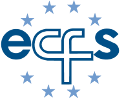The ECFS-CTN cannot guarantee that the information provided here is comprehensive. Please go to the ClinicalTrials.gov link for detailed and up-to-date information on study background, eligibility criteria, study design, outcome measures, study status, participating sites, sponsor contact information and timelines.
You can also contact the CTN coordinating centre for additional information: ECFS-CTN@uzleuven.be (link sends e-mail)
| Study Name on ClinicalTrials.gov (link is external) | 28 Day Repeat Dose in Cystic Fibrosis Patients |
|---|---|
| Study Drug | SB656933 |
| Type of Study Drug | Anti-inflammatory |
| Study Title | A Randomized, Double Blind, Parallel Group, Placebo Controlled 28 Day Study to Investigate the Safety, Tolerability and Pharmacodynamics of SB-656933 in Patients With Cystic Fibrosis. |
| Study Phase | 2 |
| Study Sponsor | GlaxoSmithKline (GSK) |
http://clinicaltrials.gov/ct2/show/NCT00903201 (link is external) | |
| Participating ECFS-CTN sites | Recruitment Finished |
| Age | 18 years and older |
Study Results
GSK study: CXCR2 antagonist SB-656933 phase 2 results
The Phase 2 trial (NTC00903201) "A randomized, double blind, parallel group, placebo controlled 28 day study to investigate the safety, tolerability and pharmacodynamics of SB-656933 in patients with cystic fibrosis" was conducted in 31 sites across 4 countries (US, France, Germany and Israel). 4 sites in ECFS-CTN participated to the study (3 in France and 1 in Germany). SB-656933 is an oral CXCR2 receptor antagonist expected to inhibit the recruitment and activation of neutrophils and other inflammatory cells into the lung in subjects with cystic fibrosis. One hundred and forty-six adult cystic fibrosis patients were randomized to receive either placebo or SB-656933 (20 mg or 50 mg once daily) for 28 days. The primary endpoint was safety. Secondary endpoints included pharmacokinetics, blood and sputum biomarkers, sputum microbiology, pulmonary function and respiratory symptoms. The results showed that SB-656933 was generally well tolerated, with no specific adverse event profile. In patients receiving the higher dose of 50 mg, there was a trend towards reduced sputum neutrophil activation, while patients receiving the 20 mg dose demonstrated opposite effects. There was no change in lung function or respiratory symptoms. Plasma concentrations of SB-656933 were lower than expected. While some of the sputum biomarker data are encouraging, longer and higher dosing will be necessary to assess the anti-inflammatory potential of SB-656933 in cystic fibrosis.
The summary of the data provided here is from the article published online in the Journal of Cystic fibrosis (Oct 2012 : http://dx.doi.org/10.1016/j.jcf.2012.08.016)

